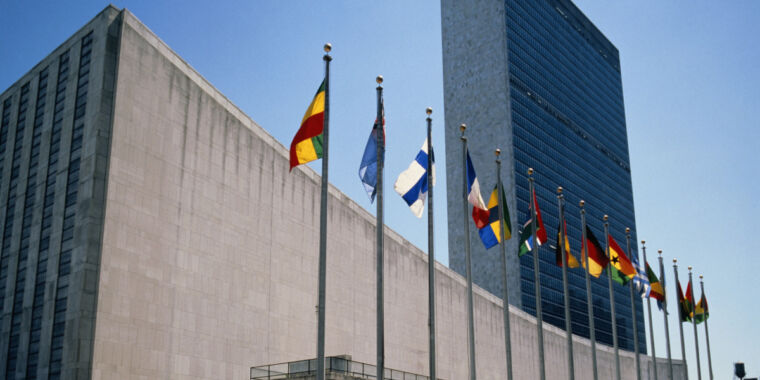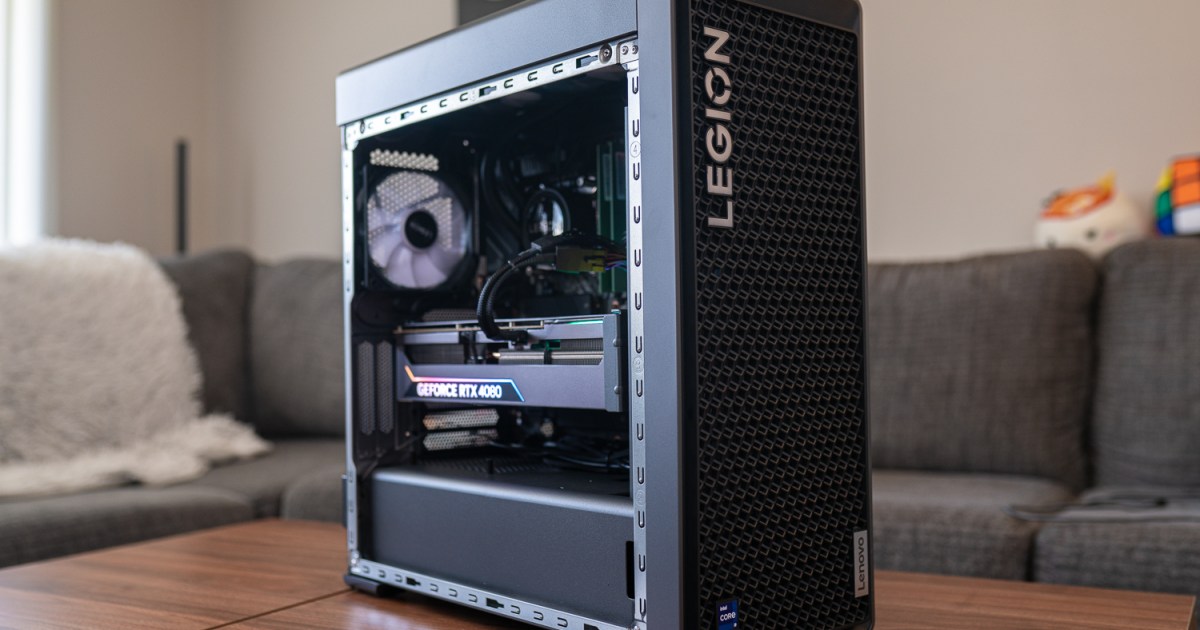[ad_1]
An atmospheric disturbance is whipping through the job market.
When Volvo announced it was cutting more than a thousand jobs last year, its CEO cited a particular phenomenon for the cuts. When the founder of the Messenger announced to his hundreds of employees that they were all laid off without severance, less than a year after the online publication booted up, the same weather pattern got the blame.
Chief executives at accounting firms, cookie companies and Crypto.com have all laid off thousands of workers in the last year, and pointed the finger at one metaphorical culprit: economic headwinds.
The phrase evokes a solemn CEO scanning the sky from the deck of the corporate ship. Eye on the horizon, he senses a change in the weather, a different snap to the rippling canvas, a new chop to the sea. With a grim set to his jaw, he concludes that only one course of action can save the voyage: massive layoffs.
Headwinds have always blown around in business English, but the phrase economic headwinds serves a special purpose: a majestic waving of the hand, an abandon to the fates, an inkling of force majeure.
“It’s a useful term, because we can’t control the wind,” said Thomas C. Leonard, a historian of economics at Princeton University. “If you’re a corporation trying to sell unhappy outcomes to shareholders or regulators, it’s a way of saying it’s a tough environment, but more importantly it’s a tough environment beyond our control.”
It’s a phrase heard often these days in the tech and media sectors, which face real challenges.
Tech companies that could raise and spend cash freely when interest rates were close to zero are struggling to stay afloat. The ad market has hit the doldrums — in part because all those companies that used to have cheap cash to pump into ads now have to keep their powder dry — which has taken the wind out of the sails of many media businesses, which had been facing financial problems for decades. And in L.A., Hollywood studios have been slow to pick up the pace of production after last year’s strikes, as they face questions over the viability of the streaming business model.
Executives in these industries are using the term precisely because of the contrast between their challenges and the wider world, Leonard said.
“The wild thing is, notwithstanding the headwinds in media and technology, the economy is doing unbelievably well,” Leonard said. Inflation is down, unemployment is at historically low levels, the U.S. is outperforming other rich countries, the stock market is booming, and even inequality of wealth and income is falling, Leonard said.
This presents a conundrum for those tasked with swinging the ax: how to explain why your company is ailing when everybody can see blue skies above?
By leaning on economic headwinds, executives can acknowledge a problem while avoiding getting into the messy details — say an outdated business model or internal failings.
EDGAR, the online database of the Securities and Exchange Commission, confirms that economic headwinds are being evoked more now than ever. In the 2000s, only a slight breeze was blowing, with public filings showing a handful of economic headwinds mentions. Things picked up in 2008 and 2009, as the financial crisis battered corporate America, but conditions seemed to subside in the middle of the last decade.
Then high interest rates rolled in. Since 2022, when the Federal Reserve started ratcheting up the federal funds rate to cool down the economy, EDGAR has been logging record after record. Nearly 500 companies mentioned economic headwinds in 2022. In 2023, that more than doubled to over 1,000.
A scan of the Newspaper Archive, which stretches back to the 18th century, tells a similar story. Through the booms and busts of the Gilded Age, the cataclysms of the Great Depression and the whirlwind of the 1970s oil crisis and stagflation, economic headwinds were barely worth mentioning. Most early mentions are riffs on the metaphor of the ship of state, with entire nations beating against the breeze, or come as puns in stories about airplanes or shipping companies.
But something changes after Y2K. Press usage of the phrase follows the same trajectory as the SEC record — with mentions up through the recession, followed by a dip, and now heading to new heights.
The collective experience of the last few years — pandemic, recession, inflation and now interest rate hikes — may have led to a turning of the rhetorical tides, said Robert Reich, professor of public policy at UC Berkeley and former secretary of Labor.
“The dominant economic assumption for really the entire post-World War II era has been that Keynesian macroeconomic management can tame the uncertainties and extremes of the economy,” Reich said. But since 2020, it’s been difficult to avoid the sense that things are spiraling out of control. “Most people felt at sea, and there’s something not necessarily comforting but seemingly realistic about these metaphors now.”
The economy stopped feeling like a precision machine in need of a tuneup, pointed surely toward growth, and started feeling more like an unpredictable journey to an unknown shore.
“Seeing the economy as a boat, one of those old galleons, or a three-masted schooner, tossed on the great waves of uncertainty and the waves of this roiling system makes much more sense to people,” Reich said.
It’s also “a wonderfully convenient way of avoiding responsibility” when things go sideways, Reich added.
Nautical metaphors are nothing new for the world of commerce — trade, finance and the joint-stock company can all trace their roots to seafaring merchants engaged in risky adventures to haul holds full of goods across the world in capital-intensive ships. And business euphemisms aren’t just limited to the seas. Few parts of the natural world have been spared from the corporate lexicon, with its changing landscapes and seismic shifts. Even the cosmos is fair game, especially in a tech world known for its moon shots and escape velocities.
Such fanciful phrases might serve a more grounded purpose: smoothing things over with investors. Research has shown that euphemisms actually work to soften bad news in the financial markets.
Kate Suslava, a professor of accounting at Bucknell University, spent years tracking how the use of metaphors in corporate earnings calls changes how the stock market reacts to new information. She found that investors aren’t total rubes — the stock prices of companies whose executives used negative metaphors like speed bumps or economic headwinds, or mentioned the need to tighten our belt or sharpen our pencils to get back to work after a series of missteps, indeed went down on the day of the earnings call.
What surprised her was that over the following months, the stock prices of the companies in question continued to drift down. “Investors take it as bad news, but it should be even worse news,” Suslava said. “If the market was efficient, they would completely capture it on the date of the call.”
In other words, a softening metaphor gets investors to under-react to the bad news. “Which is exactly the point of euphemisms,” Suslava said. “They work.”
Maqvi News #Maqvi #Maqvinews #Maqvi_news #Maqvi#News #info@maqvi.com
[ad_2]
Source link













































